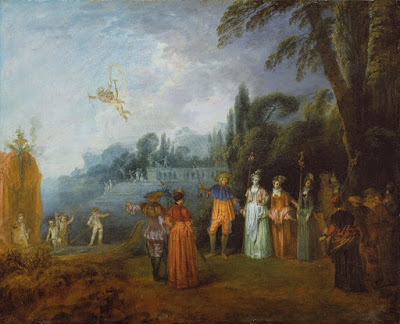For Christmases of the classic Brooknerian sort, one heads to Fraud (see here and here) and A Family Romance (here). A later Brookner, The Rules of Engagement, offers variations on the theme.
...her happy voice on the telephone, as she told me that she had been invited to the Fairlies on Christmas Day for lunch, or was it dinner? whatever that punitive meal was called...
The narrator's own seasonal plans are at this point 'obstinately' shapeless, and later resolve into an organised walk with baffled Japanese students. In the narrator's, or Brookner's, hesitancy over what to call the Yuletide feast, one learns everything about her sense of exclusion - though here the narrator, unlike so many Brooknerians, is solidly English. In A Family Romance the celebratory meal is firmly 'lunch'. I'm not sure what I'd decide. The meanings, in England at least, of lunch, dinner, tea and supper are determined by class and slippery as eels. One plumps for one or another at one's peril.




















